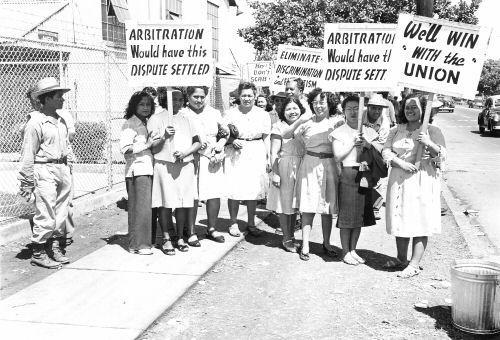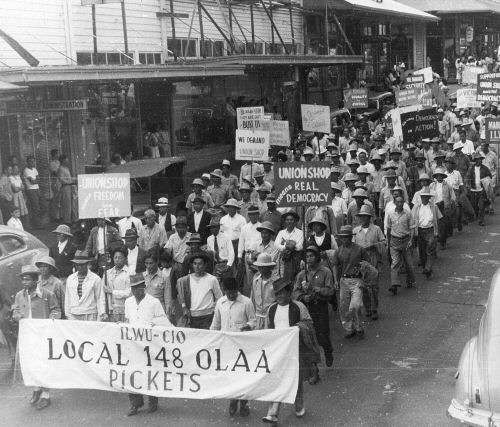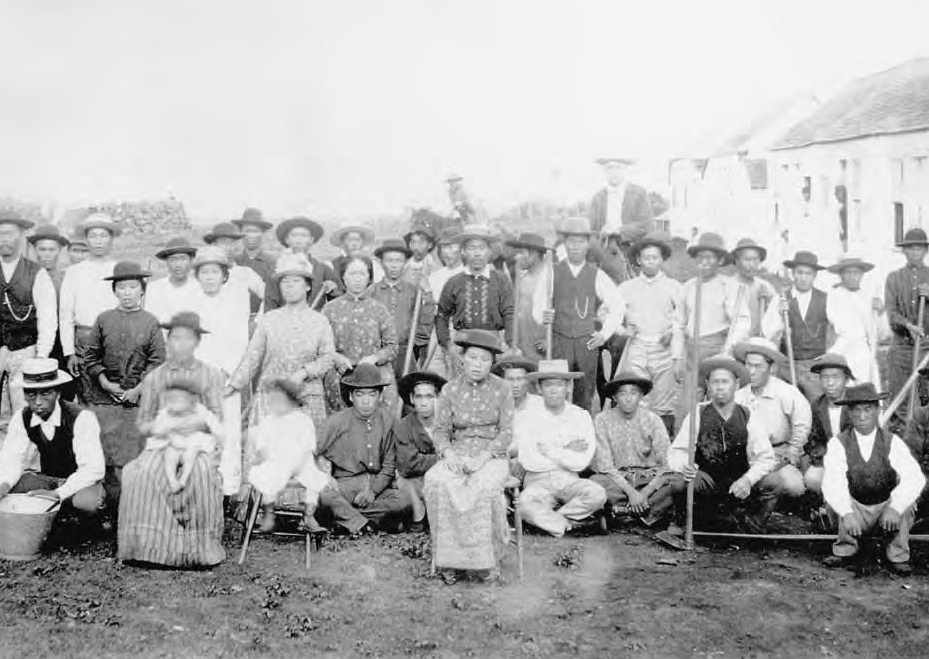sugar
On May 21, 1945, Hawaii passed the Hawaii Employee Relations Act, extending collective bargaining rights to agricultural workers. This critical expansion of the Wagner Act started laying the groundwork for.
On November 17, 1946, Hawaiian sugar workers organizing with the International Longshore and Warehouse Union ended their 79 day strike, winning a partial victory after costing planters at least $15.
On October 29, 1889, whites in Hawaii lynched the Japanese organizer and merchant Katsu Goto in Hawaii after opening a store to compete with the plantation company store and advocating.
On January 20, 1920, Filipino sugar workers on Oahu, Hawaii, went on strike to demand higher pay. Japanese workers soon joined them and this multiracial strike led to minimal victory.









